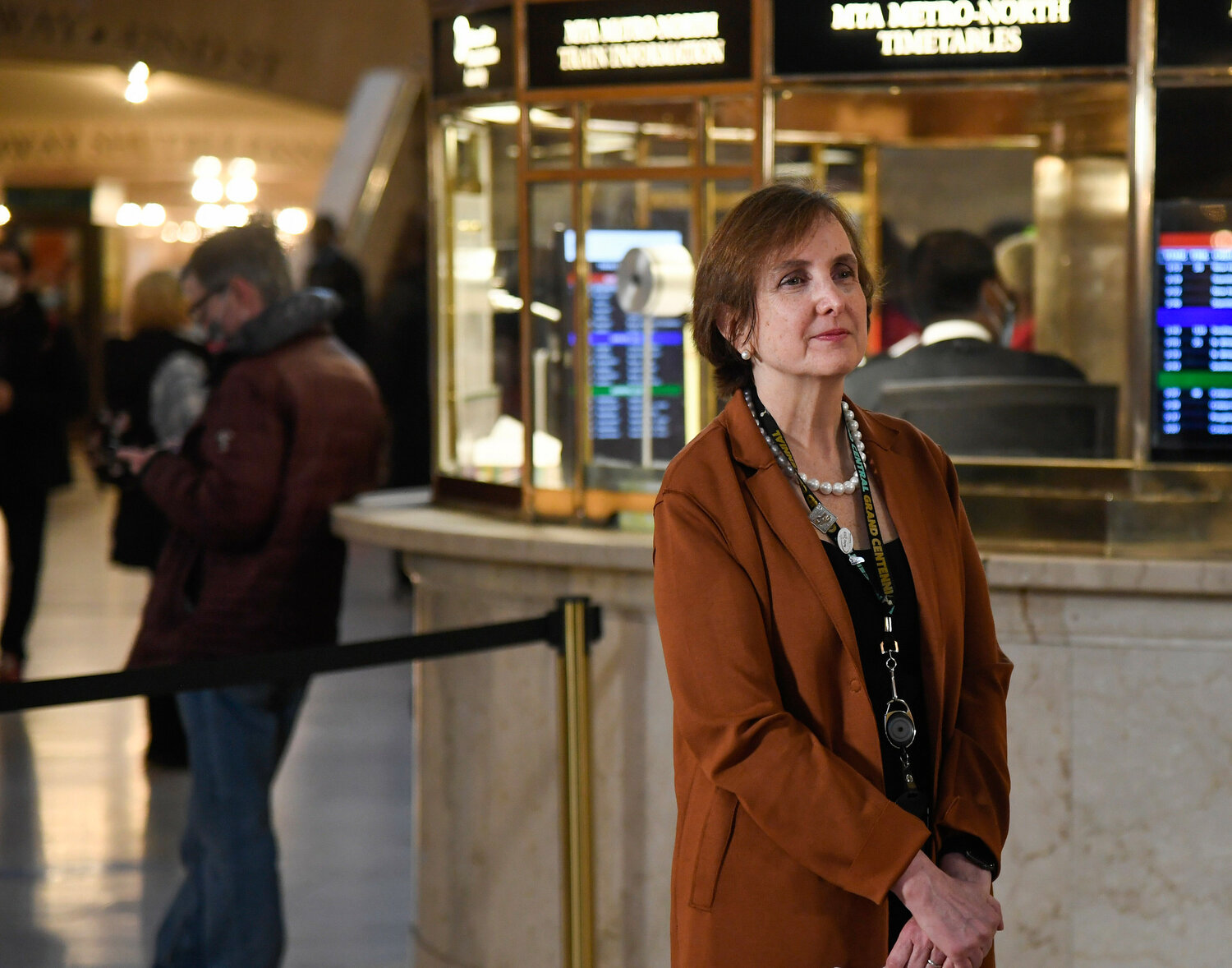Did complaints at Valley Stream station contribute to Long Island Rail Road management change?
Last year, Mayor Edwin Fare stood with County Executive Bruce Blakeman in calling on Long Island Rail Road officials to make swift overhauls to the Valley Stream train station.
The message did not produce the results Fare had hoped for from the Metropolitan Transportation Authority, the LIRR’s parent company. There was no response directed to the mayor’s desk. No urgent inspection and reassessments of the station. No repairs on the village’s station.
The station remains plagued with the same visible deterioration that, according to Fare, visibly chips away at the assurances made by the MTA that the station was and has always been “structurally safe.”
“How is it safe for commuters to walk or park under the station when, regularly, the concrete is falling?” Fare asked.
“The waiting room roof at the main Valley Stream station has had a ‘temporary’ patch for at least three years in response to chronic leaking that has resulted in a water-logged waiting room that forced its closure at one point,” he added. “Either commuters are subject to slipping hazards or forced outside in any weather condition. How is this safe?”
Fare recently returned to the Valley Stream station to lob the same complaints publicly. But this time around, he shared the stage with new friends. Flanked by Republicans and Democrats from nearly every level of government, officials echoed shared grievances and made no efforts to hide their frustration at the one person they claimed should be held responsible: the LIRR’s interim president, Catherine Rinaldi.
“We appreciate the current leadership, but we need a dedicated, permanent president devoted to running the Long Island Rail Road and focusing on the needs of what’s happening in our region,” said Assemblywoman Michaelle Solages at an August 30 press conference. “We’ve seen too many things fall through the cracks.”
She and other officials took turns sharing the podium, leveling pointed criticisms of the job performance of the interim President of the LIRR, a position she assumed in February 2022.
“Many times, when we’ve asked for repairs such as the Valley Stream train station or even trimming bushes, we’ve been told there hasn’t been sufficient funding for those improvements,” said State Senator Patricia Canzoneri-Fitzpatrick. “There is a need for better management and better leadership for these projects to be done in a timely manner.”
While praised for her efforts to improve post-pandemic ridership levels on the LIRR, Rinaldi was pushed to the center of a heated debate questioning the MTA’s wisdom in having one person hold down the executive management of two rail service systems— Metro-North and the Long Island Rail Road — at the same time amid one of the most critical and turbulent periods in the railway’s history.
Within weeks, the mounting political pressure had apparently won out.
On Monday, Rinaldi announced she would step down from her role as interim president of the LIRR. Taking her place will be LIRR senior vice president of operations Robert Free. Rinaldi will remain at Metro-North and lend the new LIRR president strategic advice from the sidelines.
For Mayor Fare, the unchanged derelict condition of the station is a visual reminder that whoever takes the helm at the LIRR must be newly committed to the needs of their constituents, seeing as Rinaldi has allegedly failed to measure up to commuters’ expectations of an interim president who “has the best interest of their local constituents at heart.”
The MTA, however, said they have recently given the LIRR the green light to begin tackling repair work at the Valley Stream station.
- Capital funding will go to renovating the station’s platform canopies by removing and replacing well-worn shingles and gutters.
- Ailing steel and concrete structures will be repaired, and the station’s elevators and escalators will be replaced.
- The station is also expected to be awarded additional funding for the painting and abatement of 36 of its columns.
And while being grilled by Long Island lawmakers in Valley Stream, Rinaldi has been widely feted among her industry peers for presiding over “two generation-defining infrastructure-expansion,” as MTA spokesperson Dave Steckel described it, “Grand Central Madison and Third Track as well the historic expansion of City Ticket on LIRR railroads.”
Yet the interim president’s biggest professional triumphs have also proven to be the most glaring pain points for some commuters who haven’t felt they’ve benefited equally —or at all— from the new programs and projects.
In fact, much of lawmakers’ frustrations have centered around recent business decisions that Rinaldi firmly backed with executives from her parent company to the alleged detriment of LIRR commuters. Key among them was the decision to pull the plug on the widely popular 20-Trip Ticket, a fare discount program that shaved 20 percent off the price of 20 peak tickets.
Paired with the recent four percent fare hike enacted on August 20, commuters, particularly thousands of part-time riders who once relied on the program, face a 30 percent price jump in tickets.
“My daughter commutes three times a week so that 20-ride ticket was vital to her,” said resident Kendra Rahall. “She’s a college student. Doesn’t make a lot of money, but buying the monthly ticket is ridiculous when it is underused, and buying two 10-trip tickets doesn’t save as much.”
Discontinuing the program, argued MTA CEO and Chairman Janno Leiber, was part of the austerity cuts outlined in the deal made with Albany earlier this year to bail out the transit giant of its projected $2.5 billion deficit in 2025.
Local lawmakers have commiserated over what they see as the declining purchasing power of LIRR riders under Rinaldi’s watch. Such concerns will likely be harder to soothe in the years ahead, regardless of who presides over the LIRR, as the MTA expects incremental increase of LIRR fares even amid an uncertain economic future for commuters.
Have an opinion on this article? Send an email to jlasso@liherald.com.






